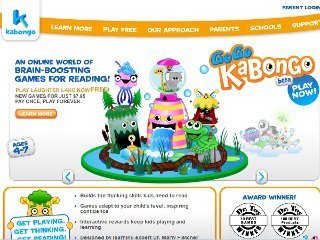

Back in 2003, I thought I was on the cutting edge geting my Masters online in seminary. But today’s educational tools blow anything I had away. This is not your mother’s tutor, nor is it even mine, thanks to the influx of venture capital flowing into the market to improve our brain power.
DreamBox, which was founded in 2006 and launched its first product in 2009, announced Wednesday that it’s raised $11 million funding, led by Netflix CEO Reed Hastings (through the non-profit venture fund Charter School Growth Fund, aka the Charter Fund) and a private investment made by John Doerr, a venture capitalist at Kleiner Perkins. GSV Capital and Deborah Quazzo also joined the round.
The total amount of funding is now at $28.1 million, including a $7.1 million initial angel investment and a $10 million R&D investment back in April 2010, when Reed Hastings and the Charter Fund bought DreamBox. At that time, the company brought in Jessie Woolley-Wilson, a former Blackboard and LeapFrog executive, as CEO.
The company plans to aggressively expand into elementary schools, and eventually middle schools and high schools. To date, the company is in 42 states, though Woolley-Wilson wouldn’t disclose how many, in our interview this morning. She did, however, say of the 70,000 elementary schools, some 45,000 are outfitted with broadband and are part of the addressable market they’re going after.
So, what does DreamBox do? The Bellevue, Wash.-based company provides an adaptive-learning tool that creates individualized instruction and curriculums for K-3 students to learn math. The technology allows students to work at his or her optimal level because the math lessons become harder or easier, depending on the level of the student.
Take for an example having a problem in which students have to add the numbers up to 37 and are given number ones, fives, twos, and so on. One student might choose 37 number ones, while another student chooses three 10s, one five and one two. Both students got the right answer, but the system will see where each student is weak and will help them understand the optimal way to answer a math problem, said Woolley-Wilson.
DreamBox is like having a personal tutor. Parents can buy DreamBox for their kids to work as a tutorial aid for $59.95 for six-month packages. Or schools can buy the service for their students. There are about 500 individualized games to choose from. At the moment, schools pay about $5000 per elementary school for an unlimited number of students to use the system at home and at school.
About 500,000 elementary students from across the country have used DreamBox. To date, they’ve viewed more than 11 million lessons. To validate the effectiveness of DreamBox, the company said an independent study by SRI showed that test scores from students using DreamBox for 16 weeks improved by 5.5%.
Popular rise in education start-ups
The education system is ripe for investments. Last year, Silicon Valley poured $177 million in funding into education start-ups, about triple what was invested in 2007. In March of this year, Imagine K-12 launched as an incubator to help start-ups who want to innovate in the education space. K-12, which provides online school programs, raised $125 million from Technology Crossover Ventures back in April of this year.
This past August, DoughMain raised $5 million for a financial education site. And, in October, Stickery, an AngelPad-incubated start-up raised $500,000 for educational games for pre-schoolers.
Why is education technology becoming a hot topic with VCs these days? Besides the budget cuts affecting every state in the U.S., the technologies have become more robust and the need to educate our children more apparent.
“There are two reasons,” said Woolley-Wilson. “There’s increasing recognition that blended learning is the wave of the future. Finally, there is a new class of education technology that can impact learning at the point of instruction. DBL moved past pure assessment and seamlessly integrates instruction with assessment to deliver the most personalized learning experience on the market today.
“Additionally, there’s an increasing awareness that we have to make investments in young minds to have the employee base we need to support the global economy.”
(Note: If you’re interested in innovation in education or have an education start-up, check out the Teach for America Innovation Awards)
(Image source: http://bryanbejaranocfp3fall2010.blogspot.com/)



















